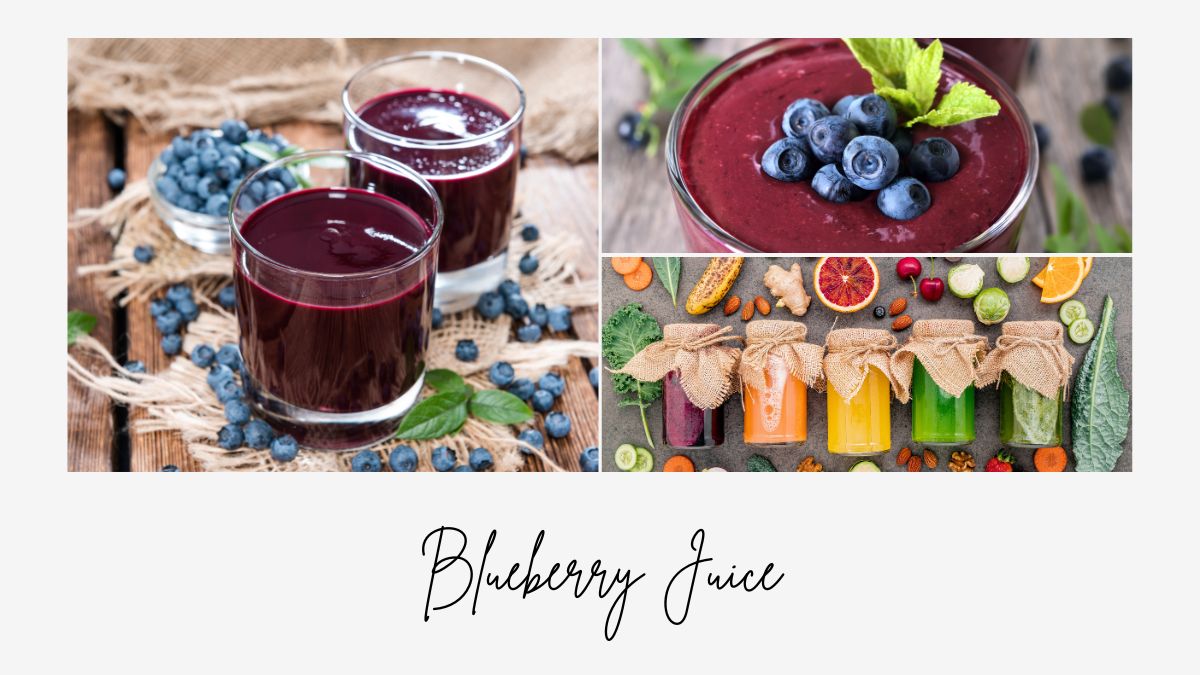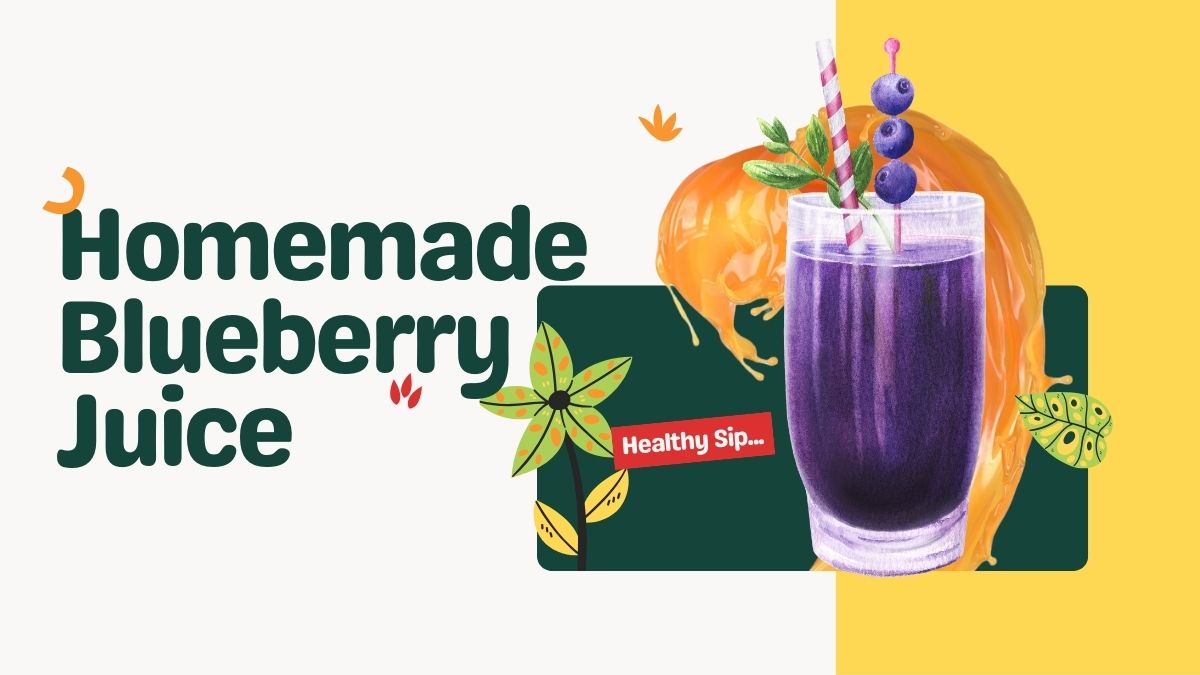- By Priyanka Munshi
- Fri, 19 Apr 2024 01:09 PM (IST)
- Source:JND
Tiny blueberries are a rich source of antioxidants, particularly flavonoids, which support the body's defense against oxidative stress and inflammation. Regular consumption of blueberry juice can promote heart health by lowering blood pressure and reducing the risk of cardiovascular disease. Furthermore, blueberries are abundant in dietary fiber and vitamins C and K, which enhance the immune system and support digestive health.
Additionally, blueberries' anthocyanins have been linked to enhanced memory and cognitive performance. A daily glass of blueberry juice might provide a delicious nutritional boost and possibly help you feel more energetic and well-being. Therefore, all the health advantages of consuming one glass of blueberry juice each day are compiled here, according to WebMD.

The anthocyanins in blueberries have been linked to enhanced memory and cognitive performance.(Image Credit:Canva)
Naturally Lowers Cholesterol
High cholesterol can accumulate in the arteries and increase the risk of heart attacks due to oxidation. Antioxidants found in blueberries prevent the oxidation of cholesterol.
Regulates Blood Sugar
Regular consumption of blueberry juice can increase insulin sensitivity for those with type 2 diabetes, leading to better blood sugar regulation.
Loaded With Antioxidants
Blueberries possess the highest concentration of antioxidants of any fruit or vegetable, making them an extremely beneficial natural source of protection against free radicals, which are dangerous chemicals that cause cell damage.

Blueberries are a delicious nutritional boost, potentially promoting energy and well-being.(Image Credit:Canva)
Better Digestion
Dietary fiber, abundant in blueberries, contributes to the efficient operation of the digestive system.
Also Read: 5 Yogurt Face Masks To Use Every Week For Glowy Skin In Summers
Reduces Blood Pressure
Regular consumption of blueberries is believed to help lower high blood pressure due to their richness in plant compounds called anthocyanins.
(Disclaimer: This article is for informational purposes only. It is not a substitute for professional advice, diagnosis or treatment.)

